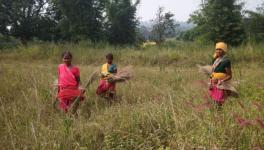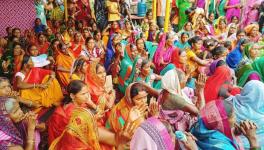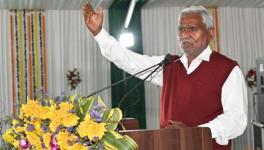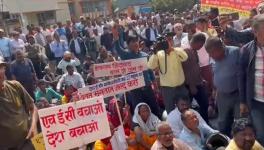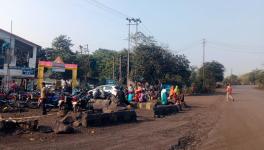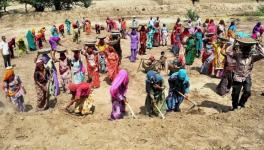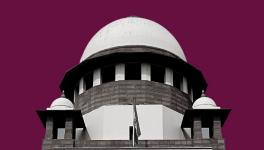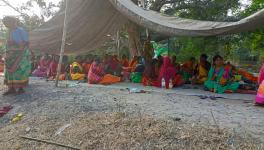Even After 18 ‘Starvation’ Deaths, Jharkhand Govt Continues to Remain in Denial
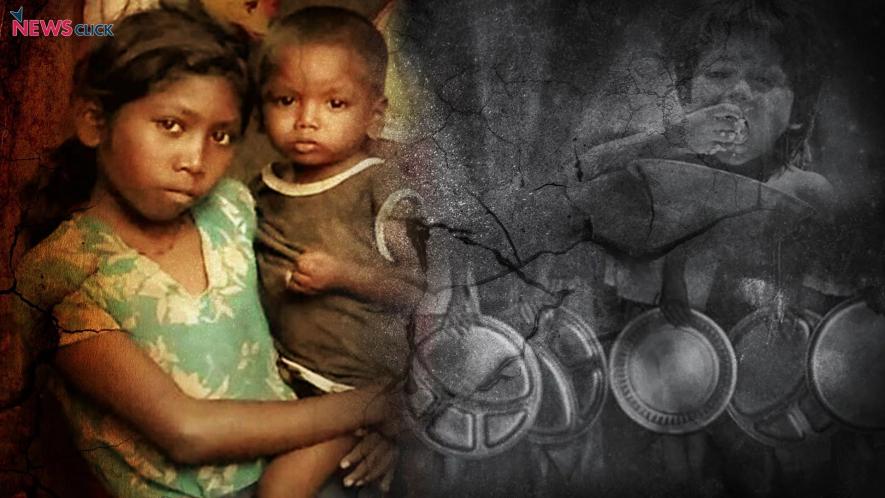
Jharkhand has reported at least 18 deaths of alleged starvation and extreme destitution since September 2017. Independent investigations into majority of the cases and subsequent media reports have confirmed that the deaths have occurred due to hunger. Yet, the government continues to be in denial, and has been passing the buck.
Minister of State for Food and Civil Supplies CR Chaudhary on December 18, last year, stated in Parliament – in response to a question on this – that “no, the state government has not reported such deaths”, and that “enquiries did not substantiate the media reports”.
Notably, no enquiry report has been placed in the public domain.
On December 25, Union Minister of Food and Civil Supplies Ram Vilas Paswan sent a letter to several state governments seeking more details in this regard. Meanwhile, the Ministry of Rural Development, based on a report published in an English daily, has also directed the Jharkhand rural development department to look into the matter, which was acted upon.
The department, in its nine-page report, sent on December 26, 2018, gave a standard response for every death, “mrityu ka karan MNREGA se parilakshit nahi hota hai (the cause of death is not related to MNREGA – a government’s rural employment schemes under the Mahatma Gandhi National Rural Employment Guarantee Act).”
Reacting to the government’s report, food rights activists in the state allege that the governments in the state as well as at the Centre are trying to wash their hands of any responsibility, instead of actually investigating why the deaths occurred. They are giving lame excuses – they activists allege – with an aim to avoid criticism over their failure to provide food security to citizens.
“The collapse of MNREGA in these areas, which could have provided work opportunities to the deceased and their families, has been ignored entirely. On the other hand, without mentioning whether the families had a job card, or whether they had got any MNREGA work, or the number of days they had worked, or whether they had been paid if employed, the report rules out any role of MNREGA in the deaths,” Siraj Dutta, a Ranchi-based food rights campaigner, told Newsclick.
Further, when the deceased were deprived of benefits to which they were entitled (e.g. a pension or Antyodaya card in the case of particularly vulnerable groups), the report glosses over this lapse on the part of the food or rural development department.
Stories of neglect, deaths and denial
Rajendra Birhor, a 39-year-old member of the Particularly Vulnerable Tribal Group (PVTG) in Ramgarh, was not allegedly issued an Antyodaya card under the Antyodaya Anna Yojana (a central government-sponsored scheme to provide highly subsidised food to millions of the poorest families) as neither he nor his wife had Aadhaar card.
He did not receive the PVTG pension he was entitled to. He was not getting any MNREGA work, and he allegedly died of destitution in July 2018.
But for the government, as it claims, the death was not linked to the employment scheme.
A total of 75 tribal groups with low development indices across the country have been classified as the PVTG (earlier known as primitive tribal group) by the Ministry of Home Affairs with the purpose of enabling them to improve their conditions.
Birhor was the only person from the particularly vulnerable group who allegedly died of hunger.
Chintaman Malhar (50) of Ramgarh died in June 2018. He did not have a ration card, a PVTG pension or a job card. The government report ignores these elements.
Gumla’s elderly widow Seeta Devi’s pension was not sanctioned, as she did not have an Aadhaar-linked bank account. The 75-year-old Adivasi woman from Basia in Gumla, who was living alone, did not eat for four days because she did not have grains or money at home. She died on October 25, 2018. An independent report suggests that she did not get ration as well in October. She was not enrolled in social security pensions, as she did not have an Aadhaar-linked bank account.
Many who had access to pensions or rations, but their benefits were disrupted due to Aadhaar or other reasons. The report glosses over these disruptions.
Kaleshwar Soren – a 45-year-old Adivasi from Jama in Gumla – died on November 11, 2018. His ration card was cancelled in 2016, as it was not linked with Aadhaar. He was reportedly living in extreme deprivation with poor access to food.
His children worked outside as unskilled workers. The family’s resources such as land, oxen and so on were sold off or mortgaged.
His sons said that the family did not have a MNREGA job card, and that their father had not been assigned MNREGA work in the past few years. The villagers said that no MNREGA work happened in the village in 2018 or 2017.
Premani Kunwar, a 64-year-old widow from Dandwa in Garhwa district, was deprived of her pension for two months before her death on December 1, 2017, as it was credited to some other account, wrongly linked with her Aadhaar.
She did not receive her ration in November 2017 even though she successfully authenticated herself through ABBA (Aadhaar-based Biometric Authentication). She and her stepsons and daughters-in-law worked as wage labourers in the village. Their families did not have MNREGA job cards. The families wanted NREGA work, but the scheme was not implemented in the village. The works under the employment scheme are being done through machines.
Santoshi Kumari (11) of Simdega district died on September 28, 2017 allegedly because of hunger. Her family – as reported – was denied ration for five months, as the card was cancelled for the lack of Aadhaar. Also, her mother Koyili Devi, who worked as a wage labourer, had not received MNREGA work, as no scheme was implemented in their village in months preceding Santoshi’s death.
But the government report does not give any reason for the cancellation of the ration card or family’s access to MNREGA entitlements.
Similarly, Ruplal Marandi of Deoghar died in October 2017 allegedly due to denial of rations for two months. It was stated that neither his nor his daughter’s thumbprints worked on the Aadhaar-based point-of-sale machine. The government report is again silent on the delivery of rations and the family’s NREGA entitlements.
Some people have never even been issued ration cards, for example, the family of 40-year-old Budhni Soren. She was also not receiving a widow pension. She died in Giridih in January 2018. The report does not mention her family’s access to NREGA entitlements such as job card, employment or payment of wages.
Savitri Devi of Giridih, who died in June 2018, also did not have a ration card despite having applied for it. Her widow pension was sanctioned in 2014, but was only credited in April 2018. In the absence of proper intimation, she did not know about it. She had a job card, but last got work in 2016. No MNREGA work took place in her village for a year before her death. The report ignores these points.
Poor implementation of schemes, but no action
Even after accidentally admitting that there had been some state liability on earlier occasions, the central government allegedly continues to ignore reports of over 60 deaths due to starvation or destitution in the last four years.
At least 30 of these deaths followed the disruption of life-saving social benefits (such as rations and pensions), often due to Aadhaar-related problems. Despite glaring violations of socio-economic entitlements of the deceased, no action has been taken against functionaries responsible for glaring lapses in the implementation of these programmes.
“It seems that everyone is trying to pass the buck. The central government is attempting to blame the state departments. The departments, guilty of poor implementation of social support programmes (notably pensions, NREGA and PDS) have been directed by the Centre to investigate their own lapses. What is required is a report by an independent entity (such as the National Human Rights Commission or a committee with representation from the media and civil society),” said Dutta, adding that “over a year has been lost in trying to get the state and central governments to acknowledge the seriousness of the situation. Instead of taking action, the government is in denial mode”.
Get the latest reports & analysis with people's perspective on Protests, movements & deep analytical videos, discussions of the current affairs in your Telegram app. Subscribe to NewsClick's Telegram channel & get Real-Time updates on stories, as they get published on our website.









